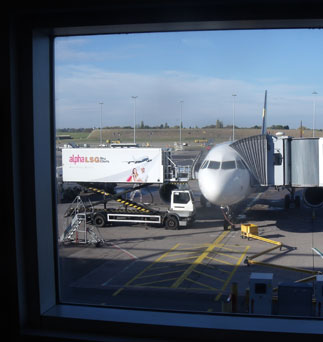There’s not enough new evidence to show that lifting an exemption on airside premises from alcohol licensing laws would be a proportionate way to address the issue of drunk and disruptive passenger behaviour. That’s the upshot of a pre-pandemic consultation by the Home Office on what the document termed ‘alcohol-related disruptive incidents’.
The report however did acknowledge a pre-covid airport ‘drinking culture’ and that ‘the data suggested a rise in disruptive incidents’, such as aggression to premises staff or airline crew, usually on outbound flights, and specifically short-haul routes to ‘party destinations’ in the summer; ‘although the way data is collected and whether or how incidents are identified as involving alcohol is inconsistent’.
Background
The background is that after evidence gathering in 2016, a House of Lords Committee recommended in its report, published in April 2017, that due the increase in alcohol related incidents at airports in recent years, the government should revoke the exemptions from the Act that apply to the 24 international airports in England and Wales. Home Office minister Kit Malthouse acknowledged ‘a significant delay’ in the government reply to the call for evidence, which ran from late 2018 to February 2019.
The Government in its response stated that data collection and sharing on alcohol-related disruptive incidents needs to be significantly improved through increased cooperation between relevant parties. The Government said that it will work with the Civil Aviation Authority (CAA), airports, airlines, and the police to record the severity of disruptive incidents and whether they are alcohol-related by using standardised definitions. The Home Office described reducing airside disruptive behaviour as ‘a shared responsibility’, between airlines, airports, airside alcohol retailers and outlets and police.
Historically, the the Licensing Act 2003 (with exceptions) does not apply to airside premises. The premises which serve alcohol airside, being highly secure once passengers have passed through screening, function in a very different way to high streets across England and Wales, the Home Office said.
The consultation heard that several respondents felt that airside retailers take advantage of the exemption from the Act by irresponsibly promoting and selling alcohol, resulting in a socially acceptable culture of drinking excessively at airports and on flights, notably by groups, such as stag or hen parties, or university students. Some passengers arrive at airports ‘pre-loaded’, already partly drunk, or bringing their own alcohol to consume landside, before going airside, where they then proceed to consume alcohol sold as on-sales or bought as duty-free off-sales. While airside pubs may not have the prolonged dwell times of high streets, some passengers may choose to stay in terminals overnight before they travel in the morning.
Sealed bags for all duty-free alcohol purchases was welcomed by many responding.
The Home Office responded that voluntary adoption of good practice and high retail standards will be more effective in the long run against ‘a small minority of passengers’ drinking and being disruptive.










